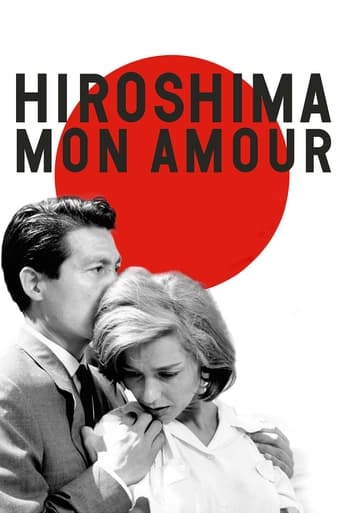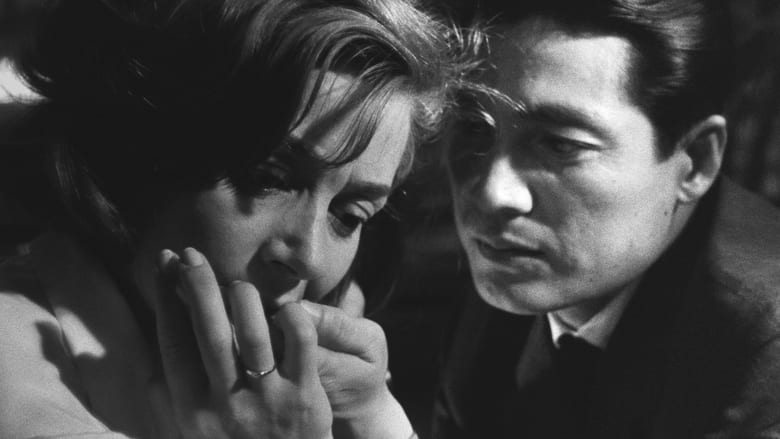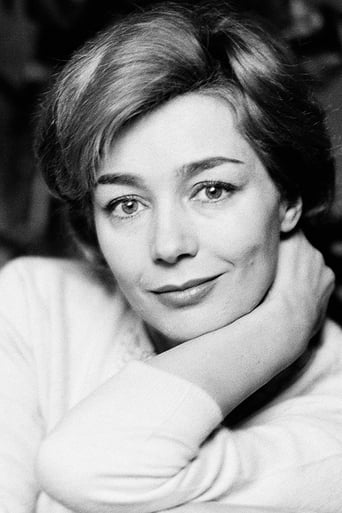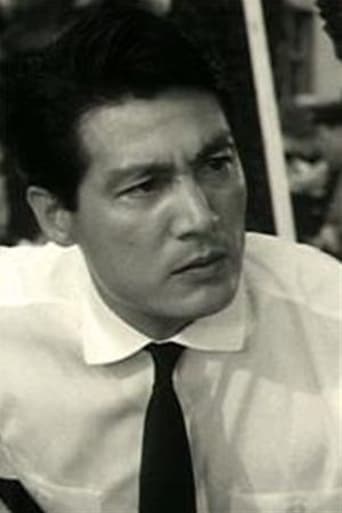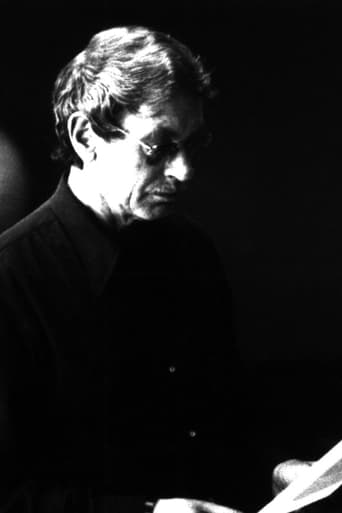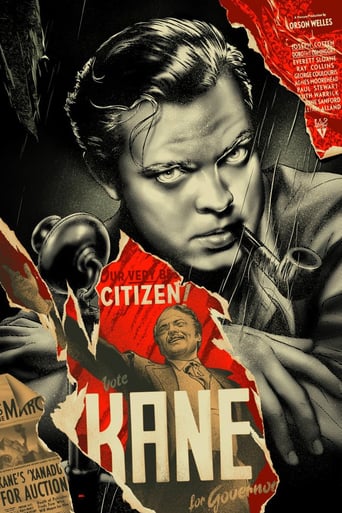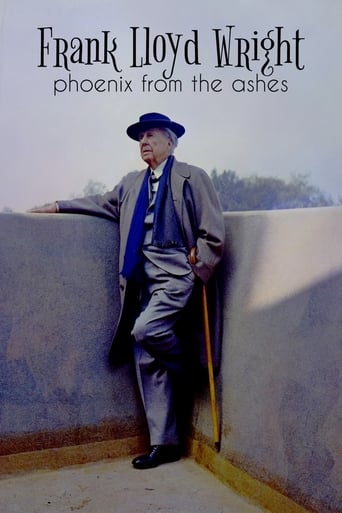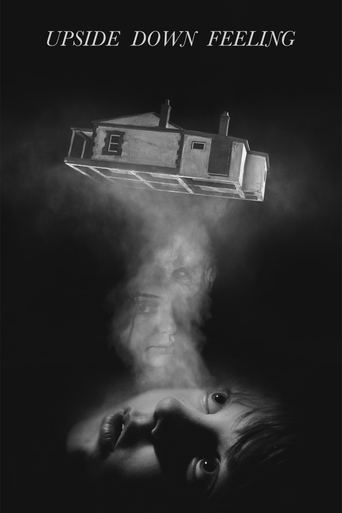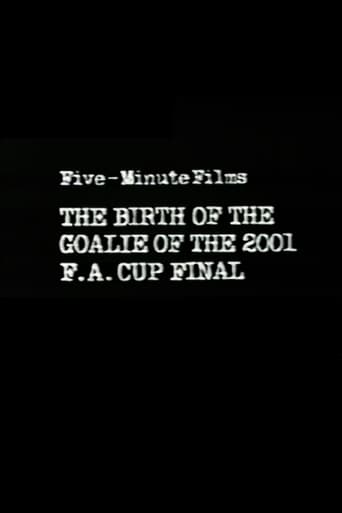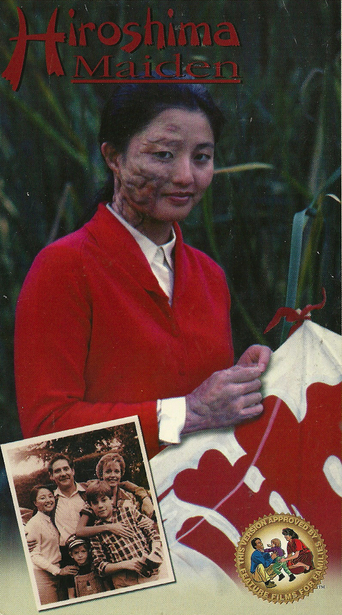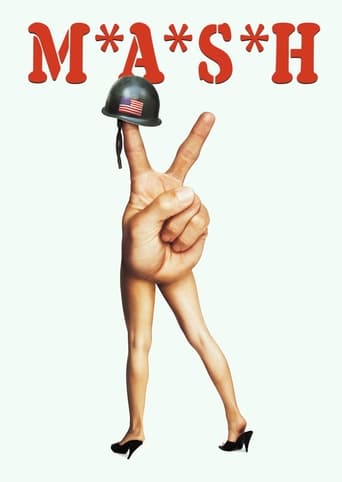Hiroshima Mon Amour (1959)
The deep conversation between a Japanese architect and a French actress forms the basis of this celebrated French film, considered one of the vanguard productions of the French New Wave. Set in Hiroshima after the end of World War II, the couple -- lovers turned friends -- recount, over many hours, previous romances and life experiences. The two intertwine their stories about the past with pondering the devastation wrought by the atomic bomb dropped on the city.
Watch Trailer
Cast


Similar titles
Reviews
You won't be disappointed!
Wow! Such a good movie.
Self-important, over-dramatic, uninspired.
Awesome Movie
Hiroshima MON AMOUR is a romantic drama about lost love, war, wishes and concerns. A French actress has came to Hiroshima to shoot a film about peace. She begins an affair with an architect. One passionate night has revived their war trauma from the past... The protagonists, which are lost in their strong emotions, are nameless. Confusing repetition of words and desires have connected two souls. They are investigating wartime past and her first love. The pace is rather slow. Unclear story was interrupted by sudden flashbacks. Scenery is a sort of contrast between the destroyed and reconstructed city. Death, disease, suffering and pain were replaced by love and memories. A love, that has trapped in the past, has escaped to the surface. A short and intense romance was compared with a strong wartime love. The protagonists were torn with an internal conflict between loyalty and indecision. Emmanuelle Riva as Elle (She)is a pale, gentle and concerned woman. Her world has collapsed in her war youth. She attempts, through a brief romance, to revive her severe war past. Eiji Okada as Lui (He)is confused lover, who has tried to understand the new situation. He is a man who feels love around him while it slowly escapes from him.Stay? Leave? Try? Lots of questions. There is no answer. However, Mr. Resnais has, trough a common contrasts, flashbacks and non-linear narrative structure, made a very good movie.
Two lovers are entwined in embrace, shot in close-up so that their bodies are twisted and joined together but their identities obscured. And then ash and sand suddenly cover every spot of their skin, and the historical and emotional baggage begin to weigh down on what would normally be a simple tryst, a quiet little affair. It is the horrific aftermath of Hiroshima soiling the bed and their passion. The woman, played by Emmanuelle Riva, is engaging in pillow talk of the most macabre kind, and the man, later revealed to be the Japanese and French speaking Eiji Okada, is busy shushing her and stroking and kissing instead. Only later does Resnais reveal what would add extra weight to these whispers; he was a soldier in the war while the bomb eradicated the city and his family - she a nurse, then actually an actress, and long ago chastised for crossing the boundaries that war so harshly marks. Resnais is one of the few directors to have mastered the flashback, which is an easy tool to incorporate but harder to submerge it within the consciousness of the character that revisits the past. In first and foremost the haunting Night and Fog, and later Marienbad and Muriel, among others of his repertoire, he crafted a use for the technique not as a storytelling device to convey information but as a way of investigating the tricky nature of memory and truth - and how they can be warped over time. Amidst the longer journeys into the past, Resnais imbues a sense of selective and wilful forgetfulness into his documentary-type footage. His compositions show the wide extent of the devastation of the a- bomb, and then jump back into the more immediate past, where the camera tracks faceless visitors of the museum that contains all the irrevocable evidence. He will align the camera with a figure walking through the hospitals and seeing the patients with its own eyes, only for Okada to quickly interrupt with an objection of this first hand experience. This is contested with harrowing images that speak for themselves; masses of lost hair, scraps of twisted metal, insects emerging from the ash and bodies with all sorts of deformations - only to dissolve to the pair stroking and whispering of each other's beautiful skin, actions which slowly begin to become laden with guilt. The pair's dialogue reveal themselves to be more or less realists about the whole situation. They work in strange and sometimes foreign locations, far away from the family - their short-lived affairs are symbolic of the post-war displacement of the family unity. They have done this before, and expect to do this again. The woman freely flaunts her 'dubious morals', more risqué than most of the women of the screen of her time, and playfully assumes the man will feel the same way when she has to leave the next day. But Resnais probes, using one of his favoured techniques, and pieces of memory begin to emerge from this front: a brief match-cut flashing a likeness to one of the corpses of the past. Drink lowers the last of her inhibitions and she bravely recounts her tale. The visual mastery of the film is evident. Whilst she excavates the past and the camera drifts along the river Nevers, bicycling in the open fields and her butchered hair paraded through the streets in full daylight, the darkness of the bar closes in on the pair until Riva's pale face is the last refuge in almost pitch black. She is slowly positioned to have the reflections of the river hit her eyes as she gets deeper into her story, until ghostly tendrils and wisps of feeble light dance over her profile and softly illuminate the single tear falling from her left eye while the right side is all but submerged. And when she walks along the streets of the city at night Resnais employs a dramatically skewed low angle so the buildings, dark as they are and flickering with cold light, tower over her tiny figure, emblematic of a modernity that has left the human behind. Hiroshima mon amour was made in the aftermath of one of the more frightening events in our recent history. It depicts a time where the bomb, a symbol for the wider technological advancements of the age, was thought by some to be overshadowing and overpowering human nature. We had knowledge and use of guns and missiles before, but never had mass murder been quite so impersonal, and never had we been able to wield a weapon with such deadly potential for long term devastation. It was technology beyond moral sense, and more sophisticated than the human spirit and intelligence that had designed and overseen its deployment. The film fashions its response in the personal connection of two lovers in the newer, stranger Hiroshima, still trying desperately to rebuild and move on from the past. First, they convince themselves this is like any other affair they have embarked on, and that in a few years all will be forgotten. Then, they try to bury history but in doing so only unlock past traumas. They seek solace in physical action, and a hope that time will stop for them (throughout Okada is attempting to convince her to extend her stay) - again, a fruitless endeavour. It is finally through a refusal of denial that they find a new starting point. The mistakes of the past are voiced clearly and out loud, and only then can we begin to move forward.
"Hiroshima Mon Amour" is another bomb-centric, left-winged, political romance by "Nouvelle Vague" mainstay Alain Resnais. It centers on a young actress, landing a part in an anti-war picture being filmed in Hiroshima, Japan. Hiroshima, as you know, is the heart of the one of the world's most shocking attacks, the droppings of the atomic bomb, "Little Boy", by the United States of America. There, she meets a charming, dashing Japanese man, and by nightfall, they engage in hot, sparkly intercourse. As they make love, "She" keeps thinking of the tragedy of Hiroshima. "She" remembers being there. "She" remembers the children that died, the diseases that aroused, the buildings petrified and the shadows of the people that perished solidified in the ground below. "He" tries to figure out why she is saying such horrible things while lovemaking. Is it the fact that she's in an anti-war picture, or did she know about Hiroshima? After days of questioning and conversation, it is revealed that "She" has chosen to engage in such a love affair after losing her lover during the war, back in her home in Nevers, France. She was in love with a German soldier. Considering the political implications of what the Nazis did to France during WWII, her entire family was unbelievably outraged. They punished her by locking her underneath the house and shredding her beautiful hair to pieces. "She" is a rebel, and perhaps a traitor of her own country, but she did it out of love for her man. "She" and "He" bond over such an intimate, taboo tale and proceed to psychologically torture each other in furious, politically charged lust. Not only were they longing for each other, they were longing for revenge. "Hiroshima Mon Amour", is in essence, an open-handed slap in the face to allied powers of WWII. It's a message, not just of anti-nukes, but a complete rejection of national pride, in favor of lustful revenge. Resnais's political implications are brash to say the least, but through his anger at the destructive nature of the war, he constructed one of the most passionate, incredible love stories of all time. It's a romance of death. It's a movie that refuses to accept the sorrow around itself, and locks itself deep within the arms of the weak and powerless. Many people say that sleep is the best revenge and sometimes it's good living, but here, good loving. The performances sold the entire thing for me. Vastly overlooked for her performance is the lovely Emmanuelle Riva, as "She". Only now, as an elderly woman is she getting her award show dues, but what else can you expect from the Academy? They never recognize the best performances when they're right in front of them. I truly believed these two as lovers, and I wouldn't be any bit surprised if a real relationship budded behind the scenes.
As a college freshman some 45 years ago, I saw this film in the student union They had a commitment to art films. I have to say that I do remember the stream of dialog between the two characters but little about the content. I knew he (the Japanese man) had lost his family on that August day. I recall her pulling inward as he becomes a bit demanding. Watching it with mature eyes and a fresh view of the world, I was brought back to these two traumatized characters and the war that changed them forever. It begins with a discussion of the Hiroshima museum which contains pictures and artifacts from that fateful day. He keeps telling her that she has not seen Hiroshima as they lay entwined in bed. His pain is more predictable. He lost his family that day while he was away. Hers takes a more melancholy road. As she opens up, she tells the story of a love affair with a German soldier whom she would meet in all manner of places. One day she found him dying, curled up on the ground. She sits with him until he dies. New of their trysts gets out and she is ostracized by her community, her hair cropped, beaten, and thrown in a cellar by her own family. She has not told this story to anyone, including her own husband, until now. While she feels somewhat liberated the pain is too deep. The Japanese man, also married, wants her to stay in Hiroshima. The movie is about the relationship going forward with such damaged people. She repeatedly tries to escape him, but he keeps resurfacing. The sad thing is that she desires him and so it's not as if she is being stalked. Resnais is a master with the camera, using black and white contrasting images, engaging flashbacks, close-ups. One really marvelous scene is where the young woman, who has been playing a small part in an anti-war film, is nearly trampled by protesters carrying signs. Hiroshima is constantly in her face. She has been hurt so badly by the war and is carrying a load of guilt. War carries with it a loss of innocence and pain beyond the obvious. This film really captures this.

